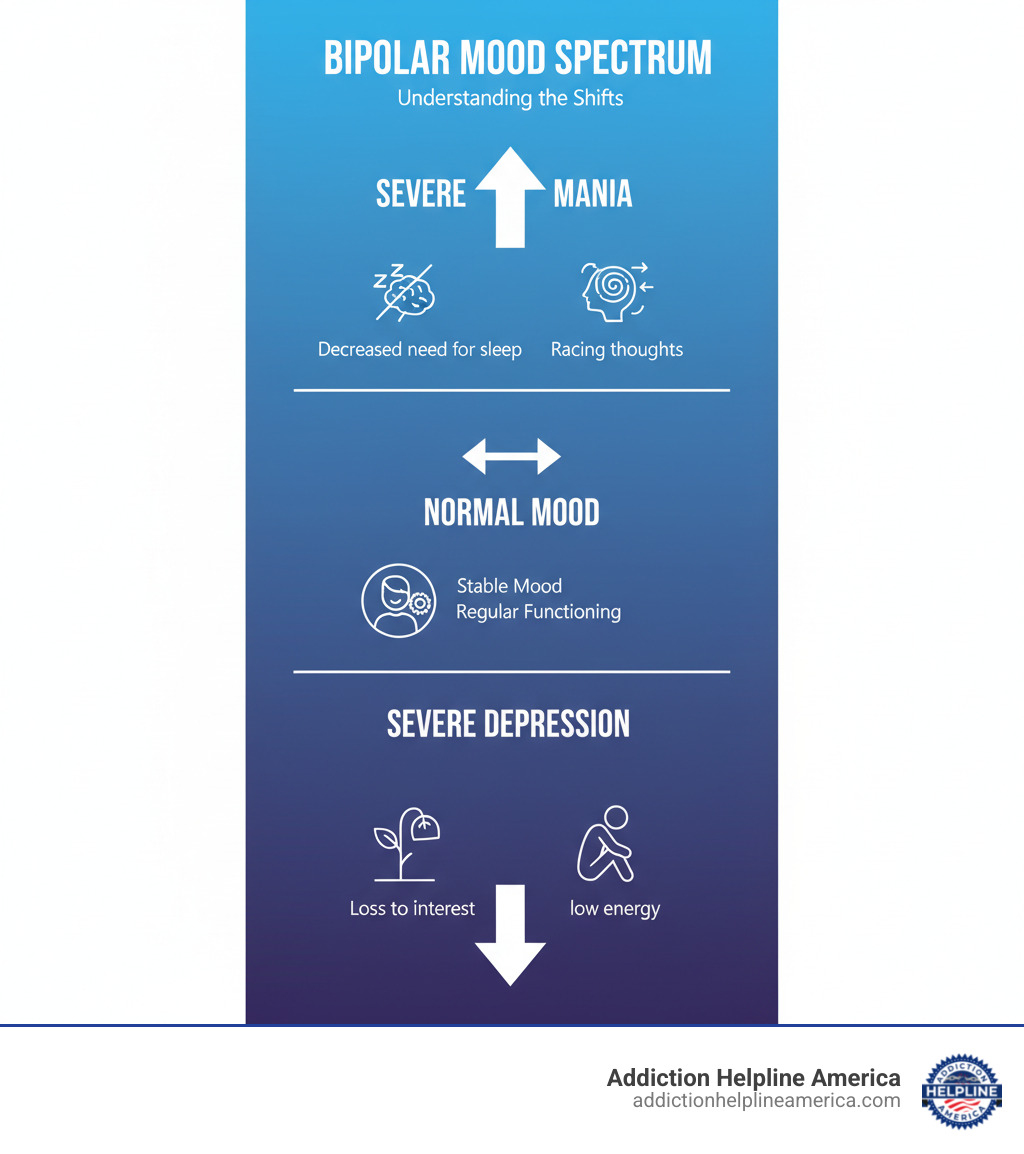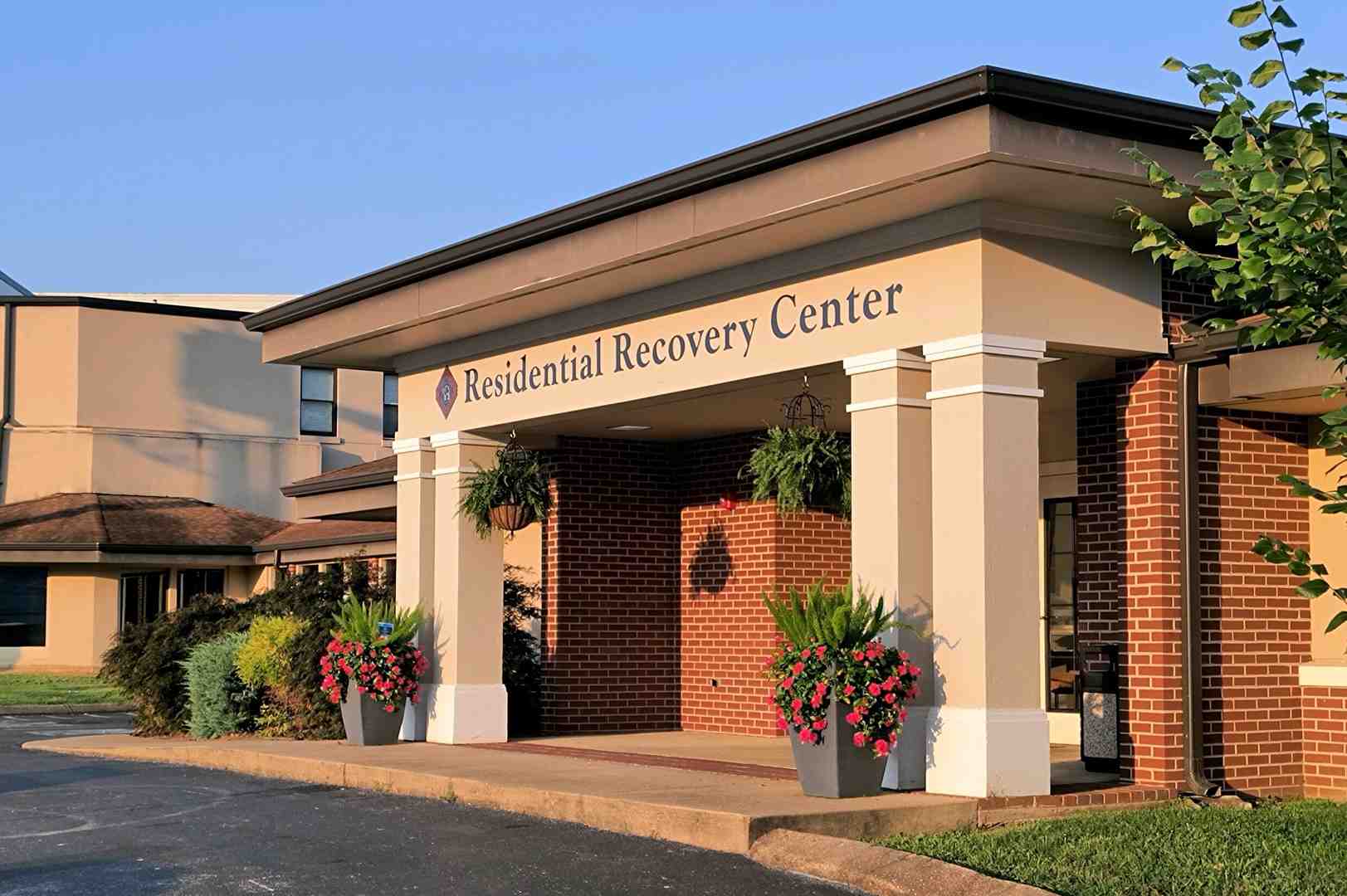
Finding the Right Help for Bipolar Disorder Management
Bipolar disorder doctors near me include psychiatrists, psychiatric nurse practitioners, psychologists, and therapists who specialize in this complex condition. Here’s how to find them:
Quick Ways to Find Bipolar Disorder Doctors:
- Insurance Directory: Check your health insurance provider’s online directory for in-network mental health professionals.
- Professional Organizations: Visit the American Psychiatric Association’s “Find a Psychiatrist” tool.
- Primary Care Referral: Ask your family doctor for recommendations for local specialists.
- Crisis Resources: Call or text the 988 Suicide & Crisis Lifeline for immediate support and local referrals.
Bipolar disorder is a medical condition causing distinct shifts in mood, energy, and concentration. People with this condition experience periods of extremely liftd or irritable behavior—known as manic episodes—and very sad or hopeless periods called depressive episodes. Between these episodes, many people feel relatively normal.
The condition is lifelong but can be managed effectively with professional help. Treatment usually requires both medication and psychotherapy, and finding experienced doctors who understand this balance is crucial.
Living with bipolar disorder can feel overwhelming, but there is hope. With proper treatment, people can maintain stability and live fulfilling lives.
At Addiction Helpline America, we connect individuals with specialized mental health professionals who treat bipolar disorder. We understand that finding qualified bipolar disorder doctors near me is the critical first step toward lasting recovery.
Bipolar disorder doctors near me word guide:
Step 1: Understand the Different Types of Bipolar Disorder Doctors
When searching for bipolar disorder doctors near me, you’ll find different types of professionals. Effective treatment often involves a team working together.
Think of bipolar disorder like a chronic condition that requires ongoing management. The best approach combines medication with therapy, which is why you’ll often work with multiple specialists.
The Professionals Who Treat Bipolar Disorder
- Psychiatrists (MD or DO) are medical doctors specializing in mental health. They can prescribe and manage medication, which is essential for treating bipolar disorder.
- Psychologists (PhD or PsyD) are experts in psychotherapy (“talk therapy”). They help you develop coping strategies and address emotional and behavioral patterns. They can also perform psychological testing to clarify a diagnosis.
- Psychiatric Nurse Practitioners (PMHNPs) are advanced practice nurses trained in mental health. Like psychiatrists, they can diagnose conditions, prescribe medication, and provide therapy.
- Licensed Professional Counselors (LPCs) & Clinical Social Workers (LCSWs) are therapists who provide counseling to help you manage daily life with bipolar disorder. They do not prescribe medication but are a vital part of the therapy team.
Psychiatrist vs. Psychologist
| Feature | Psychiatrist (MD/DO) | Psychologist (PhD/PsyD) |
|---|---|---|
| Education | Medical degree (MD or DO) + psychiatric residency | Doctoral degree (PhD or PsyD) in psychology |
| Primary Role | Diagnoses and treats with medication management | Diagnoses and provides psychotherapy (talk therapy) |
| Medication | Can prescribe and adjust medications | Cannot prescribe medication in most states |
| Approach | Focuses on biological and medical aspects | Focuses on behavioral, emotional, and cognitive aspects |
Many people with bipolar disorder see both a psychiatrist for medication and a psychologist or therapist for talk therapy.
Recognizing Bipolar Disorder Symptoms and Types
Bipolar disorder exists on a spectrum with several types:
- Bipolar I Disorder: Defined by at least one manic episode, which is a period of abnormally liftd or irritable mood and increased energy lasting at least a week. Most people with Bipolar I also have depressive episodes.
- Bipolar II Disorder: Involves at least one hypomanic episode (a less severe form of mania) and at least one major depressive episode. The depressive episodes are often the most challenging aspect.
- Cyclothymic Disorder: A milder form with numerous periods of hypomanic and depressive symptoms over at least two years, but the symptoms don’t meet the full criteria for an episode.
Symptoms of mania or hypomania include exaggerated self-esteem, decreased need for sleep, racing thoughts, rapid speech, and engaging in risky behaviors. Depressive episodes involve profound sadness, loss of interest, changes in sleep or appetite, fatigue, feelings of worthlessness, and difficulty concentrating. Some people experience mixed episodes, with symptoms of both mania and depression at the same time.
Step 2: Get an Accurate Diagnosis
An accurate diagnosis is the foundation of your treatment journey. Bipolar disorder can be tricky to diagnose because its symptoms often mimic other conditions like depression or ADHD. A thorough evaluation by an experienced professional is essential.
The Diagnostic Evaluation Process
A comprehensive evaluation is a deep dive into your mental health history and symptoms.
- Physical Exam and Lab Tests: Your doctor will first rule out physical problems that can cause mood swings, such as thyroid issues or vitamin deficiencies. These tests ensure something else isn’t causing your symptoms.
- Psychiatric Assessment: A psychiatrist or PMHNP will ask detailed questions about your mood patterns, energy levels, sleep, and thoughts. They’ll want to know how these changes have affected your relationships, work, and daily life.
- Family History: Bipolar disorder often runs in families, so sharing your family’s mental health history provides important context for your doctor.
Honesty during this process is crucial. Your doctor is there to help you find answers, not to judge.
Mood Charting and Symptom Tracking
Keeping a daily record of your moods, sleep, and life events can be incredibly helpful for diagnosis. This practice creates a map of your inner world, revealing patterns you might not notice otherwise.
Tracking your moods helps your doctor see exactly how high the highs get and how low the lows dip. Sleep patterns are especially important, as changes in sleep are often an early warning sign of a mood episode. Noting significant life events helps identify personal triggers.
Bringing this information to your appointment gives your doctor objective data. Many people we’ve worked with at Addiction Helpline America found that mood tracking helped them become an active partner in their own care. This accurate diagnosis then becomes the roadmap for your personalized treatment plan.
Step 3: Explore Effective Treatment Options
Once you have a diagnosis, the next step is exploring treatment. Bipolar disorder is a lifelong but highly manageable condition. The goal is long-term stability and a better quality of life. The most effective approach combines medication and psychotherapy.
Medication Management
For most people, medication is the first line of defense. A psychiatrist or PMHNP is best qualified to manage these medications.
- Mood Stabilizers: These are the primary medications, designed to level out extreme highs and lows. Examples include lithium and valproic acid.
- Antipsychotics: Often used to control manic or mixed episodes, and sometimes for depression. Examples include olanzapine and quetiapine.
- Antidepressants: May be used for depressive phases, but they are typically prescribed alongside a mood stabilizer to avoid triggering a manic episode.
Finding the right medicine can take time and may involve some trial and error. Open communication with your doctor about side effects is crucial. Medication adherence is paramount, even when you feel well, to prevent a relapse. Always consult your doctor before changing your medication. For more information, the information on bipolar disorder from MedlinePlus is a reliable resource.
The Role of Psychotherapy (Talk Therapy)
Therapy equips you with practical tools to manage your condition day-to-day.
- Cognitive Behavioral Therapy (CBT): Helps you identify and change unhealthy thought patterns and behaviors.
- Interpersonal and Social Rhythm Therapy (IPSRT): Focuses on stabilizing daily routines, like sleep-wake cycles and meal times, to regulate your mood.
- Family-Focused Therapy: Involves loved ones to improve communication and create a supportive home environment.
- Psychoeducation: Involves learning about bipolar disorder to empower you to take an active role in your recovery.
Lifestyle and Home Remedies
Lifestyle changes can significantly support your stability. These are complements to, not substitutes for, professional treatment.
- Maintain a consistent routine: A predictable schedule for sleeping, eating, and activities helps stabilize your internal rhythms.
- Eat a healthy diet: Good nutrition supports brain function and can positively influence mood.
- Get regular exercise: Physical activity is a proven mood booster and stress reducer.
- Prioritize sleep: Aim for 7-9 hours of quality sleep per night and maintain a regular sleep schedule.
- Manage stress: Techniques like meditation, yoga, or deep breathing can help you cope with life’s stresses.
- Avoid alcohol and drugs: Substances can destabilize mood and interfere with medications. If you struggle with substance use, Addiction Helpline America can connect you to programs that treat both conditions simultaneously.
Step 4: How to Find Bipolar Disorder Doctors Near Me
Finding the right mental health professional is a personal journey, but you don’t have to do it alone. With the right tools, you can locate qualified bipolar disorder doctors near me who fit your needs.
Using Online Tools and Referrals
Here’s where to start your search:
- Your Insurance Provider’s Directory: This should be your first stop. Log into your insurance company’s website to find in-network psychiatrists, psychiatric nurse practitioners, or psychologists. This is the most practical way to manage costs.
- Professional Organization Websites: The American Psychiatric Association maintains a “Find a Psychiatrist” tool at psychiatry.org where you can locate board-certified psychiatrists by location and specialty.
- Government Resources: The Substance Abuse and Mental Health Services Administration (SAMHSA) offers a confidential national helpline and an online service locator to find support and mental health services in your area. This is especially helpful if you have co-occurring substance use concerns.
- Primary Care and Hospital Referrals: Ask your primary care doctor for a referral to a trusted specialist. Local hospitals or university medical centers often have psychiatric departments that can provide recommendations.
What to Look for in a Doctor or Therapist
Once you have a list of potential providers, consider these factors:
- Specialization in Bipolar Disorder: Look for professionals who list bipolar disorder as a primary specialty. Their focused experience is invaluable.
- Treatment Philosophy: Find a provider whose approach aligns with your values. Do they emphasize a collaborative approach? Are they open to combining medication with therapy and lifestyle changes?
- Communication Style: You need a doctor you feel comfortable with. Look for someone who listens, explains things clearly, and treats you with respect.
- Telehealth Availability: Video appointments can be a convenient and effective option for care.
Questions to Ask a Potential Provider
Come to your first conversation prepared with questions. You are interviewing them for a role on your healthcare team.
- What is your specific experience treating bipolar disorder?
- How do you approach treatment, balancing medication and therapy?
- What types of therapy do you specialize in?
- How do you monitor medication effectiveness and manage side effects?
- What is your availability for urgent issues?
- Do you work collaboratively with other professionals?
- What are your fees, and do you accept my insurance?
- Do you offer telehealth appointments?
At Addiction Helpline America, we can help you steer these questions and connect you with the right professionals and treatment programs for your needs.
Step 5: Prepare for Your Appointment and Ongoing Care
Finding bipolar disorder doctors near me is the starting line. Managing bipolar disorder is a marathon that requires your active participation and commitment. You are a partner in your healthcare.
How to Prepare for Your First Appointment
A little preparation helps your doctor understand your situation quickly.
- List Your Symptoms: Write down everything you’ve been experiencing—the highs, the lows, how often they happen, and how they affect your life. Don’t minimize anything.
- Gather Key Information: Note major life stressors, your medical history, and any family history of mental health conditions.
- Compile a Medication List: Include all prescription drugs, over-the-counter medicines, vitamins, and supplements with their dosages.
- Prepare Your Questions: Bring a written list of questions to ensure you get the information you need.
- Bring Your Mood Chart: If you’ve been tracking your moods, this data is invaluable for your doctor.
At Addiction Helpline America, we’ve seen how this preparation can make the first appointment empowering.
Navigating Costs and Insurance
Understanding the financial side of treatment is important. An “in-network” provider has a contract with your insurance company, which means lower costs for you. An “out-of-network” provider will likely cost more out of pocket.
Before your first appointment, call your insurance company. Ask about your mental health benefits, including your co-pay (what you pay per visit) and deductible (what you pay before insurance kicks in).
If costs are a barrier, ask providers if they offer sliding scale fees based on income or payment plans. Some may also provide a “superbill” that you can submit to your insurance for partial reimbursement.
Your long-term stability depends on consistent care. Investing in a strong support team—including resources like Addiction Helpline America’s support resources—is worth it.
Frequently Asked Questions about Bipolar Disorder Care
Can my primary care doctor treat bipolar disorder?
Your primary care doctor can perform an initial assessment and refer you to a specialist. However, ongoing management of bipolar disorder requires a psychiatrist or psychiatric nurse practitioner who specializes in the complex medication management needed. The most effective approach is team-based care, where your primary doctor coordinates with your mental health specialists.
How long does it take to find the right medication?
Finding the right medication often involves a trial-and-error process that requires patience. Your doctor will start with a low dose and adjust it over weeks or months. Some people find the right regimen in a few months; for others, it may take longer. Open communication with your doctor about your response and any side effects is key to success.
What resources are available for families and individuals?
Support is available for both you and your family. Support groups connect you with others who understand your challenges. Family-focused therapy helps improve communication and creates a supportive home environment.
At Addiction Helpline America, we specialize in connecting people to treatment for co-occurring bipolar disorder and substance use disorders. We offer confidential support resources and can help you find professional help.
For immediate crisis support, call or text the 988 Suicide & Crisis Lifeline. In any life-threatening emergency, call 911.
Your Next Steps in Finding Bipolar Disorder Doctors Near You
You’ve taken an important journey through understanding how to find and work with bipolar disorder doctors near me, and that journey itself is something worth acknowledging. Searching for the right mental health professional can feel daunting, especially when you’re already managing the challenges of bipolar disorder. But here’s what we want you to remember: bipolar disorder is a manageable condition, and finding the right doctor is truly the critical first step toward lasting stability and recovery.
We’ve walked through five essential steps together—understanding the different types of mental health professionals who treat bipolar disorder, getting an accurate diagnosis through comprehensive evaluation, exploring effective treatment options that combine medication and therapy, using online tools and resources to locate qualified providers in your area, and preparing yourself for that crucial first appointment and the ongoing care that follows.
Each of these steps builds on the last, creating a foundation for your recovery. You now know that psychiatrists can prescribe and manage your medications, while psychologists and therapists provide the talk therapy that helps you develop coping skills. You understand that diagnosis takes time and careful evaluation, and that treatment plans are always individualized to fit your unique needs. You’ve learned where to look for providers—from your insurance directory to professional organizations like the American Psychiatric Association—and what questions to ask when you find them.
Most importantly, we hope you’re walking away with a sense of hope. The mood swings, the disrupted relationships, the challenges at work or school—these don’t have to define your future. With the right team of professionals, appropriate medication, effective therapy, and lifestyle adjustments, people with bipolar disorder can achieve remarkable stability. They maintain meaningful relationships, pursue fulfilling careers, and live rich, complete lives.
At Addiction Helpline America, we’ve spent years connecting individuals and families just like yours with specialized mental health professionals and treatment centers across all 50 states and the District of Columbia. We understand that bipolar disorder often occurs alongside other challenges, particularly substance use disorders, and we’re equipped to help you find comprehensive programs that address all your needs simultaneously. Our service is completely free, confidential, and personalized—because we believe everyone deserves access to quality mental health care, regardless of their circumstances.
The search for help shouldn’t add to your burden. You don’t have to figure this out alone or spend hours calling providers who might not be the right fit. Our team is standing by to listen to your specific situation, understand your insurance coverage, consider your location and preferences, and connect you with treatment programs and mental health professionals who can truly help.
Take that first step today. Reach out, ask for help, and start building the stable, fulfilling life you deserve. Get confidential, personalized help finding a treatment program today. Your recovery journey begins with a single conversation, and we’re here to have that conversation with you whenever you’re ready.
Our helpline is 100%
free & confidential
If you or someone you care about is struggling with drug or alcohol addiction, we can help you explore your recovery options. Don’t face this challenge alone—seek support from us.
Programs
Resources
Will my insurance
cover addiction
treatment?
We're ready to help
Find the best
drug or alcohol treatment
center
Are you or a loved one struggling with addiction? Call today to speak to a treatment expert.












